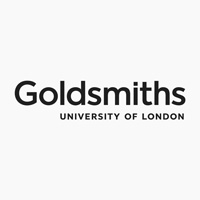fees waived
History, BA (Hons)
Goldsmiths, University of London, United Kingdom
Ranking in UK
History Of Art, Architecture and Design
Arts and Humanities
Arts and Humanities
Costs
food & rent S$24.9K / year
Entry requirements
Scholarships
Limited quantity
Information
Code
Intakes
Website (External)
Programmes
Information
Duration
2028
Studying BA History at Goldsmiths offers a dynamic and innovative approach to a vital discipline, emphasizing global perspectives, relevance to contemporary issues, and interdisciplinary connections. Students explore worldwide histories, legacies of key events, and themes like identity and environment through a variety of modules, including options from partner institutions such as Birkbeck and UCL. The programme is research-led, fostering critical thinking via cutting-edge topics like Black British and Queer history, while supporting academic growth through small seminars, field trips, and diverse assessments.Goldsmiths' commitment to social awareness, creative arts, and inclusion prepares graduates for careers in law, business, or further study. The curriculum includes compulsory modules like Global Connections in Year 1, electives in Year 2, and a 60-credit Special Subject dissertation in Year 3. Assessments, such as essays, presentations, and portfolios, promote skill development and timely feedback, ensuring students build competencies progressively.
Year 1 In your first year, you'll take the following compulsory modules: Global Connections Historical Controversies Reading and Writing History Identity, Agency & Environment 1 Identity, Agency & Environment 2 You'll also be able to choose two optional modules from across the Department of History from a list that is published annually. Year 2 Your second year will give you the chance to broaden your intellectual horizons, and have more freedom over what you study. You will take these compulsory modules: The Goldsmiths Elective The Goldsmiths Project You'll also choose 90-credits worth of optional modules, which may comprise of modules from the Department of History, relevant modules from other departments (known as Connected Curriculum), and up to 30 credits from a University of London Intercollegiate Group II module from a list approved annually by our partner institutions. Partners include: Birkbeck; King’s College London; Queen Mary; Royal Holloway; University College London. Year 3 Your final year will be spent developing your specialist interests and knowledge. You'll undertake a Special Subject module, worth 60 credits, that includes a dissertation and runs for 20 weeks across the autumn and spring terms. You can choose to undertake your Special Subject module at Goldsmiths or you can choose a University of London Intercollegiate Group III Special Subject module from a list approved annually by our partner institutions. Partners include: Birkbeck, King’s College London, Queen Mary, Royal Holloway, University College London. You also have a free choice of modules to the value of 60 credits, which can include both 30-credit and 15-credit modules. Up to 30 credits can be a ‘related studies’ module taken in another Goldsmiths department. Please note that due to staff research commitments not all of these modules may be available every year.
A local representative of Goldsmiths, University of London in Singapore is available online to assist you with enquiries about this course.

